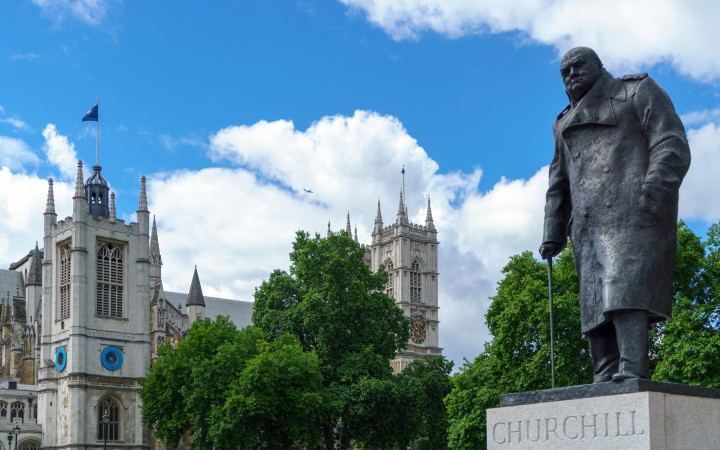Today’s Wonder of the Day was inspired by Nadia. Nadia Wonders, “What did Winston Churchill invent?” Thanks for WONDERing with us, Nadia!
"I have nothing to offer but blood, toil, tears and sweat." Those were the famous words spoken by Winston Churchill to the House of Commons in his first speech as prime minister of Great Britain.
Known as the "British Bulldog" and one of the greatest statesmen of the 20th century, Winston Churchill was a writer, military commander, politician, and world leader during one of the darkest times in modern history: World War II.
Born in 1874, Churchill would twice serve as prime minister of the United Kingdom. His first stint, from 1940-1945, would see him forge alliances with both the United States and the Soviet Union to defeat Nazi Germany and its Axis allies during World War II.
Although Great Britain endured intense bombing raids, Churchill gave stirring speeches in Parliament and on the radio to encourage and lift the spirtis of the British public. He also negotiated assistance from the United States before America entered the war after the attack on Pearl Harbor.
Churchill is given primary credit for guiding the Allied forces to victory in Europe. Despite his efforts, however, he was voted out as prime minister just two months after Germany's surrender.
This setback did not keep Churchill from continuing his work to make the world a better, safer place. For example, after World War II, he would spend the next several years warning the world about the Soviet Union and its expansionist goals.
In 1946, Churchill warned in a speech in Fulton, Missouri, that a dangerous "Iron Curtain" had fallen across Europe. He considered the Communist threat to democracy "a growing challenge and peril to Christian civilization," which would be realized in the coming Cold War years.
Churchill was elected prime minister again in 1951 and served until 1955. During this time, he focused on important economic reforms, while also trying to maintain peace in the wake of the war.
In 1953, Churchill received two prestigious honors. He was knighted by Queen Elizabeth II, and he also received the Nobel Prize in Literature for his six-volume history of World War II.
Churchill died in 1965, a year after retiring from Parliament. Although his long years as a public servant left a complicated legacy, today most residents of Great Britain consider him a hero and a legend.




